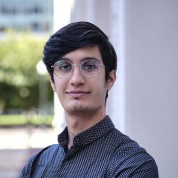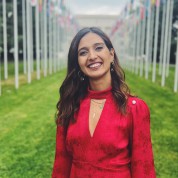PS1.5
Reservoir for Change Making: Youth and The Geopolitics of Planetary Health
25
Jan
The future health of the planet and human health are inextricably linked. There is a growing pressure of climate change impacts and ambitions in an ever-shrinking window for transition to a 1.5°C world. Biodiversity loss and ecosystem collapse is viewed as one of the fastest deteriorating global risks over the next decade[1]. Planetary health is an integrative approach that can bring more coherence to multilateral bodies and countries’ foreign policies. Applying a planetary health lens to international negotiations could enhance synergies across multiple fragmented agendas, notably related to health, environment, human rights, and security[2].
According to the Global Risk Report 2023, the next decade will be characterized by environmental and societal crises, driven by underlying geopolitical and economic trends[3]. Global political and economic systems are often driven by short-term economic interests and fail to take into account the long-term consequences of environmental degradation for human health and well-being. However, geopolitical dynamics are also creating significant headwinds for global cooperation, which often acts as a guardrail to global risks.
Engaging youth in leveraging these geopolitical dynamics and addressing planetary health challenges is critical. According to the 2023 IPCC Synthesis Report, the current and future generations will experience a hotter and different world hence shouldering the climate-driven health and mental well-being consequences[4]. Over half of the world’s youth population live in countries that are deemed extremely high risk for climate disasters[5], and the mental health of countless more young people has been impacted by climate instability[6].
To fight such intergenerational injustices, young people are pioneering a human rights-based approach to address climate change[7]. Youth-led movements have highlighted the urgent need for action on climate change and broader planetary health issues. They are holding their governments and organizations accountable for their carbon emissions and climate commitments. Young people worldwide are demanding that world leaders take urgent action to address climate change, and their activism has already yielded some successes.
For example, the Paris Agreement on Climate Change, signed in 2015, was a result of global youth activism and the pressure it exerted on world leaders[8]. In March 2023, the UN General Assembly approved a landmark resolution requesting an advisory opinion by the International Court of Justice on States’ obligations concerning climate change and human rights that was driven by the Pacific Island Students Fighting Climate Change through the World's Youth for Climate Justice campaign[9].
However, despite being capable changemakers, youths face structural, institutional and perceptual barriers to participating in the decision-making processes that shape climate action. The four-pronged strategy is outlined to enable meaningful integration of youth voices as a pillar of planetary health. The mechanisms, by which governments, organizations, and the planetary health movement can champion youth leaders and foster intergenerational climate health leadership include: (1) consulting existing youth advocates, (2) developing longitudinal relationships with youth-led networks, (3) providing visibility to youth engagement initiatives, (4) ensuring accountability for engaging young people[10] and (5) ensuring young people have a seat at the decision making table.
In PMAC2023, the youth engagement efforts have been successful in “PS 1.4: Elevating the voices of young people for climate action”, demonstrating the effective agency of young experts taking climate action across all disciplines. The session also fostered outcome-oriented intergenerational dialogues between the young participants and key actors at PMAC that charted new pathways for collaboration.
It is vital to continue building on this momentum of meaningful youth engagement for climate action. Young people can use their voices and PMAC2024 as a platform to demand action from political leaders and push for the translation of the ambitious climate goals into concrete action that protects and promotes the health of the most affected communities. Furthermore, they can utilize this platform to demand that young people be included in the decision making process for building a future that they will live in. More critically, youth engagement can help bridge the gap between different geopolitical interests and bring people together around a common cause.
References
[1] Health, T. L. P. (2022). No public health without planetary health. The Lancet. Public Health, 7(4), e291.
[2] de Paula, N. (2021). Planetary health diplomacy: a call to action. The Lancet Planetary Health, 5(1), e8-e9.
[3] Global Risks Report 2023, World Economic Forum, 2023
[4] https://report.ipcc.ch/ar6syr/pdf/IPCC_AR6_SYR_SPM.pdf
[5] UNICEF. The climate crisis is a child rights crisis: introducing the children’s climate risk index. 2021. http://data.unicef.org/resources/childrensclimate-risk-index-report.
[6] Marks E, Hickman C, Pihkala P, et al. Young peoples voices on climate anxiety, government betrayal and moral injury: a global phenomenon. SSRN 2021; published online Sept 7. http://dx.doi.org/10.2139/ ssrn.3918955 (preprint).
[7] https://www.hhrjournal.org/2021/12/children-adolescents-and-youth-pioneering-a-human-rights-based-approach-to-climate-change/
[8] Han, H., & Ahn, S. W. (2020). Youth mobilization to stop global climate change: Narratives and impact. Sustainability, 12(10), 4127.
[9] https://press.un.org/en/2023/ga12497.doc.htm#:~:text=The%20General%20Assembly%20today%20adopted,long%20struggle%20for%20climate%20justice.https://press.un.org/en/2023/ga12497.doc.htm. Accessed May 2023
[10] Arora, R., Spikes, E. T., Waxman-Lee, C. F., & Arora, R. (2022). Platforming youth voices in planetary health leadership and advocacy: an untapped reservoir for changemaking. The Lancet Planetary Health, 6(2), e78-e80.
This session aims to champion youth leaders and foster intergenerational climate health leadership. The session will explore/leverage geopolitical dynamics to empower youth-led approaches and advocacy in addressing climate change and health, global inequalities, and promoting sustainable development.
Specifically, the panel will explore the challenges faced by communities in accessing essential resources such as education, clean air, water, and food – key determinants of health; and the grassroot solutions led by youth-led organizations/groups. The session objectives are outlined below:
- To explore how geopolitical dynamics impact planetary health and intergenerational equity through the lens of local lived experiences of youth, their perspectives and storytelling.
- To demonstrate and showcase concrete examples of how youth-led initiatives worldwide have leveraged geopolitical dynamics in addressing climate change and promoting health equity and pioneered a human-rights based approach.
- To suggest practical pathways and entry points for an intergenerational approach to lift structural, institutional and perceptual barriers preventing youth from participating in the decision-making processes that shape climate action addressing climate change and health inequalities.
SPEAKERS
Biosketch
Alejandro Daly
Benita Kayembe
Natnicha Manaboriboon
Omnia El Omrani
Thanasak Thumbuntu
Zahra Al Hilaly







